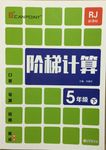题目内容
短文填词 根据短文内容和以下提示:1)首字母提示,2)语境提示,3)汉语提示,在每个空格内填入一个适当的英语单词。所填单词要求意义准确,拼写正确。(10分)
A group of swans (天鹅)flew down to a beach where a crow(乌鸦)was jumping around. The crow watched t with disdain(鄙视).
“You have no flying skills at all!” he said to the swans. “ All you can do is to move your wings. Can you turn over in the air? No, that’s (超出) you. Let’s have a flying competition. I’ll show you what real flying is!”
One of the swans, a strong young male, took up the challenge. The crow flew up and began to show his skills. He flew in circles, (表演) other flying tricks, and then came down and looked at the swan (自豪地).
Now it was the swan’s . He flew up, and began flying over the sea. The crow flew after him, making all kinds of comments(评价)about his flying. They flew on and on till they couldn’t see the land and there was but water on all sides. The crow was making fewer and fewer comments. He was now so tired that he found it hard to stay in the air, and had to struggle to keep himself from falling the water.
The swan pretended(假装)not to notice, and said, “Why do you k touching the water, brother? Is that another trick?”
“No, ” said the crow. He knew he had the competition. “I’m in trouble because of my pride! I you don’t help me , I’ll lose my life……”
The swan took pity on him, and took him on his shoulders and flew back to the beach.
A group of swans (天鹅)flew down to a beach where a crow(乌鸦)was jumping around. The crow watched t with disdain(鄙视).
“You have no flying skills at all!” he said to the swans. “ All you can do is to move your wings. Can you turn over in the air? No, that’s (超出) you. Let’s have a flying competition. I’ll show you what real flying is!”
One of the swans, a strong young male, took up the challenge. The crow flew up and began to show his skills. He flew in circles, (表演) other flying tricks, and then came down and looked at the swan (自豪地).
Now it was the swan’s . He flew up, and began flying over the sea. The crow flew after him, making all kinds of comments(评价)about his flying. They flew on and on till they couldn’t see the land and there was but water on all sides. The crow was making fewer and fewer comments. He was now so tired that he found it hard to stay in the air, and had to struggle to keep himself from falling the water.
The swan pretended(假装)not to notice, and said, “Why do you k touching the water, brother? Is that another trick?”
“No, ” said the crow. He knew he had the competition. “I’m in trouble because of my pride! I you don’t help me , I’ll lose my life……”
The swan took pity on him, and took him on his shoulders and flew back to the beach.
小题1:them
小题2:beyond
小题3:performed
小题4:proudly
小题5:turn
小题6:nothing
小题7:into
小题8:keep
小题9:lost
小题10:If
试题分析:这篇短文中骄傲的乌鸦瞧不起天鹅,向天鹅发起挑战.结果在挑战中失败,不得不向天鹅求救,最后被天鹅救了命. 从而告诉我们骄傲使人落后的道理.
小题1:根据句意(乌鸦鄙视地看着它们)及首字母提示此空应填them。
小题2:根据汉语提示“超出”此空应用介词beyond。
小题3:根据汉语提示“表演”应用动词perform的过去式performed。
小题4:根据汉语提示“自豪地”应用副词proudly。
小题5:根据语境提示(现在该轮到天鹅了)可知此空应填turn。
小题6:根据语境提示(它们一直飞知道看不到陆地,周围除了水什么也没有)可知此空填nothing。
小题7:根据语境提示乌鸦尽力是自己不落进水里,所以此空填介词into。
小题8:根据句意(为什么你不不停的接触水呀?)及首字母提示此空填keep。
小题9:根据语境提示(乌鸦知道他在比赛中失败了)此空填lost。
小题10:根据句意(如果你不帮助我)及首字母提示此空填If。

练习册系列答案
 阶梯计算系列答案
阶梯计算系列答案
相关题目


